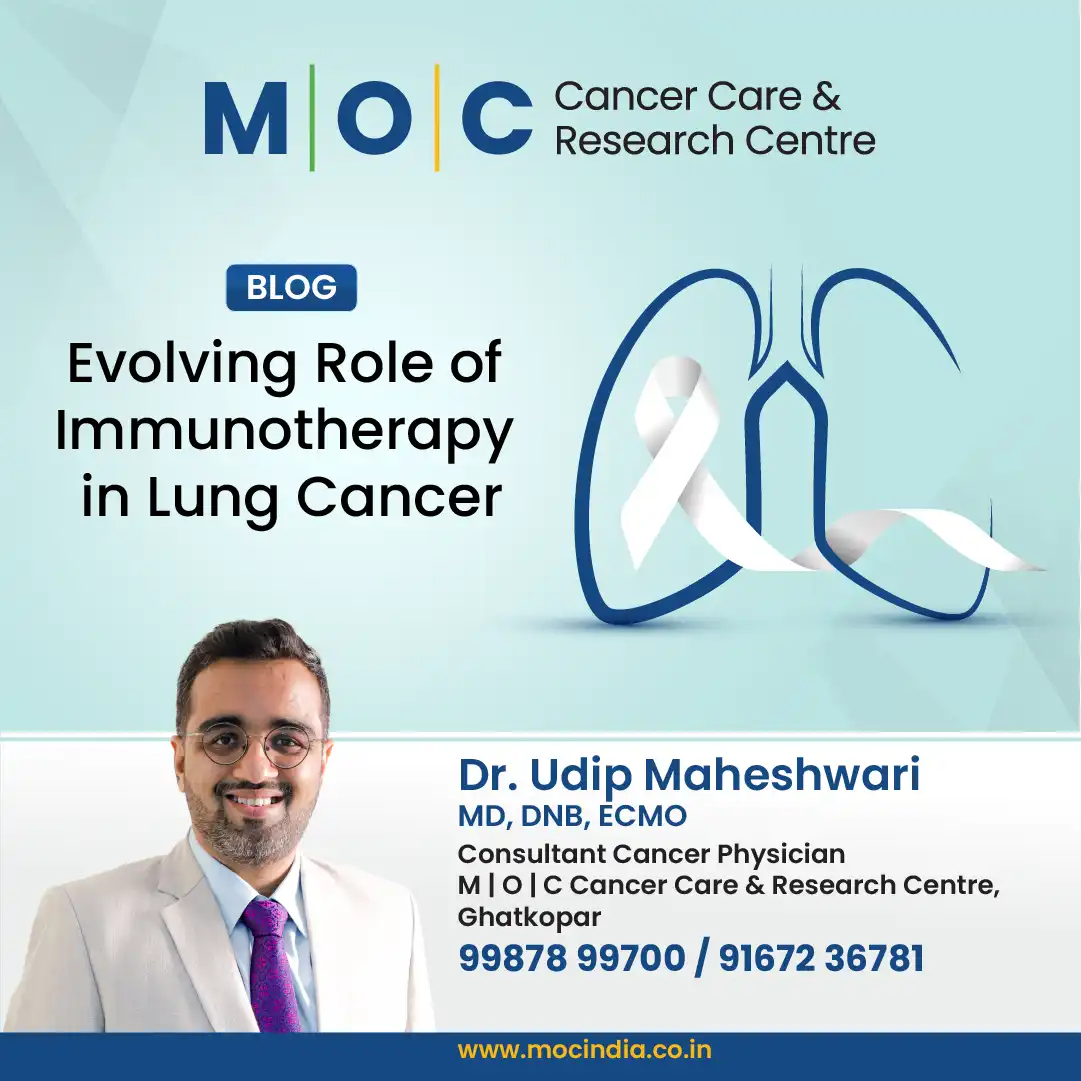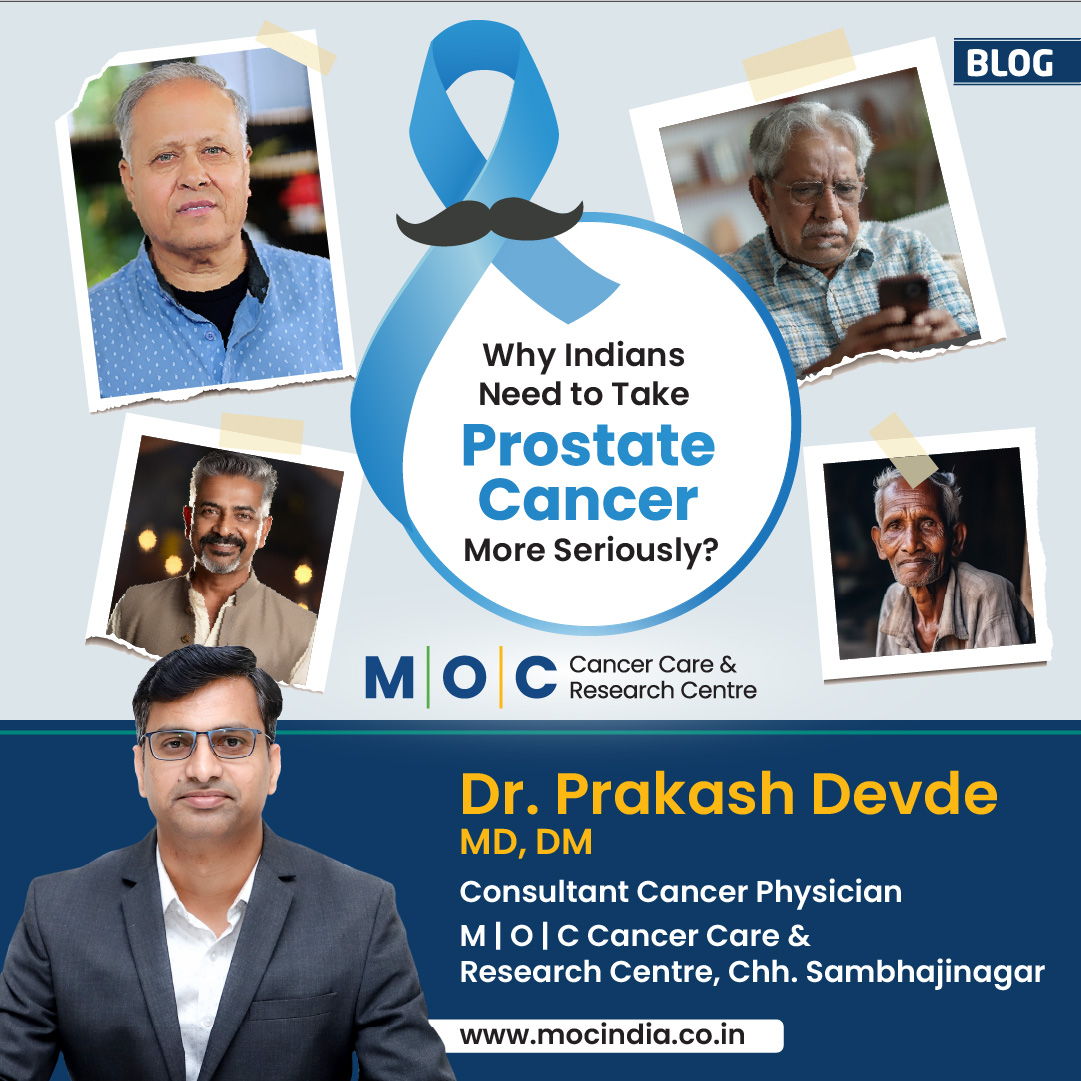Evolving Role of Immunotherapy in Lung Cancer



Immunotherapy has revolutionised the treatment paradigms in lung cancer, offering new ray of hope to patients and significantly improving survival. Lung cancer is the most common cancer world-wide and leads to highest number of cancer related deaths. Treating lung cancer was difficult in the past as there were limited options of chemotherapy and radiotherapy and very few patients became eligible for surgery.
Advancements in medical science has led to discovery of battery of drugs grouped as immunotherapy, which works by harnessing the power of the body's immune system to recognize and attack cancer cells, thus providing newer modality for treating this disease.
One of the important immunotherapy drug groups for treatment of lung cancer are immune checkpoint inhibitors. These drugs target specific proteins on immune cells or cancer cells, effectively releasing the brakes on the immune system and allowing it to launch a stronger attack on cancer cells. The immune system has specific proteins that act as checkpoints on immune cells and regulate immune responses thus preventing its inadvertent overactivation which could lead to these immune cells harming our own normal cells leading to autoimmune diseases. However, cancer cells are smarter and can exploit these checkpoints to evade detection and destruction by the immune system. Immune checkpoint inhibitor drugs work by blocking these checkpoints, thereby releasing the shackles leading to the immune system to recognize and attack cancer cells more effectively. Pembrolizumab, nivolumab, and atezolizumab are among the checkpoint inhibitors approved for the treatment of lung cancer.
Immune mediation towards cancer involves checkpoints and one of the most studied checkpoints in lung cancer is programmed cell death protein 1 (PD-1) and its ligand PD-L1. PD-1 protein is expressed on surface of immune cells (T-Cell) involved in recognizing and killing cancer cells while ligand PD-L1 is overexpressed on the surface of cancer cells. When PD-1 on T cells binds to PD-L1 on cancer cells, it dampens the immune response and allows cancer cells to evade destruction.
Pembrolizumab and Nivolumab are drugs targeting the PD1 protein and atezolizumab inhibits PD-L1 which allows T cells to efficiently recognize and attack cancer cells. These drugs have been in use in lung cancer since 2010 -2012 and clinical trials have shown significant survival advantage with prolonged and durable disease control in metastatic lung cancer.
As the understanding of cancer biology advances there are various roles of immunotherapy that come to the fore, it can not only be used in metastatic setting but also where tumour reduction is important prior to surgery and to prevent recurrences and surgery and/or radiotherapy. Immunotherapy can also now be combined with chemotherapy and targeted therapy to produce dramatic responses in lung cancer.
However, it's important to note that not all patients respond to immunotherapy, and some may experience significant side effects. These can include immune-related adverse events such as inflammation of the lungs (pneumonitis), colitis, hepatitis, and endocrine dysfunction. Close monitoring and early intervention are essential to manage these side effects effectively.
Furthermore, while immunotherapy has transformed the landscape of lung cancer treatment, challenges remain. For example, identifying biomarkers that predict which patients are most likely to benefit from immunotherapy is crucial for optimizing treatment selection and improving outcomes. Biomarkers such as PD-L1 expression levels and tumor mutational burden are currently used to guide treatment decisions, but ongoing research aims to identify additional predictive markers.
In conclusion, immunotherapy represents a significant advancement in the treatment of lung cancer, offering new hope and improved outcomes for many patients. As our understanding of the immune system and cancer biology continues to evolve, immunotherapy is poised to play an even greater role in the future of lung cancer treatment.
Dr. Udip Maheshwari
MD DNB ECMO
Cancer Physician
M | O | C Ghatkopar
Latest Blogs
-
![Esophageal Cancer in Rural India: A Rising Threat]()

- 15th Apr, 2025
- Esophageal Cancer in Rural India: A Rising Threat
-
![Why Indians Need to Take Prostate Cancer More Seriously? An Oncologist's Opinion]()

- 20th Mar, 2025
- Why Indians Need to Take Prostate Cancer More Seriously? An Oncologist's Opinion
-
![Women’s Day: A Call for Action Against Women’s Cancers in India.]()

- 10th Mar, 2025
- Women’s Day: A Call for Action Against Women’s Cancers in India.
-
![A Unique Perspective on Women and Cancer- A Food for Thought]()
.jpg)
- 3rd Mar, 2025
- A Unique Perspective on Women and Cancer- A Food for Thought
-
![Bridging Hope and Equity for Young Warriors this International Childhood Cancer Day]()
.jpg)
- 18th Feb, 2025
- Bridging Hope and Equity for Young Warriors this International Childhood Cancer Day
-
![World Cancer Day 2025: United by Unique, Empowered by Hope.]()

- 5th Feb, 2025
- World Cancer Day 2025: United by Unique, Empowered by Hope.
Book Your Appointment








